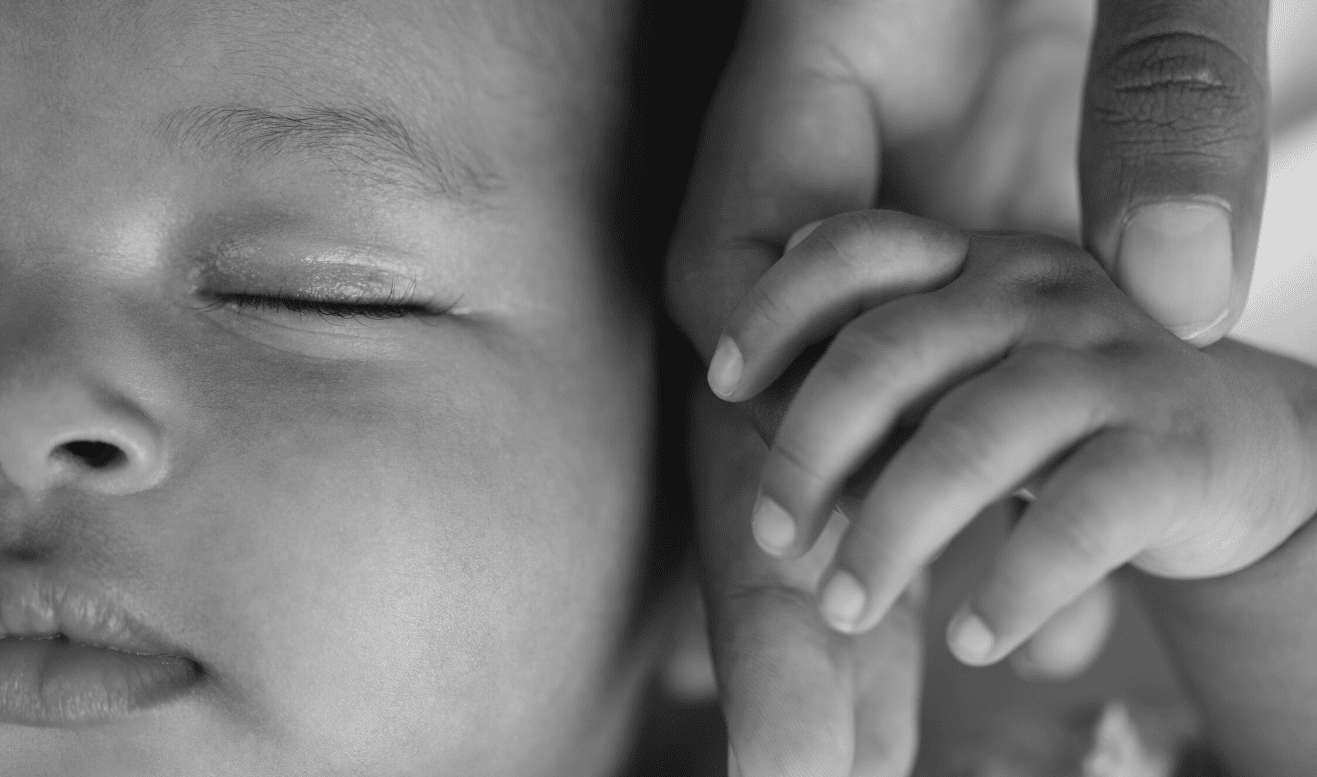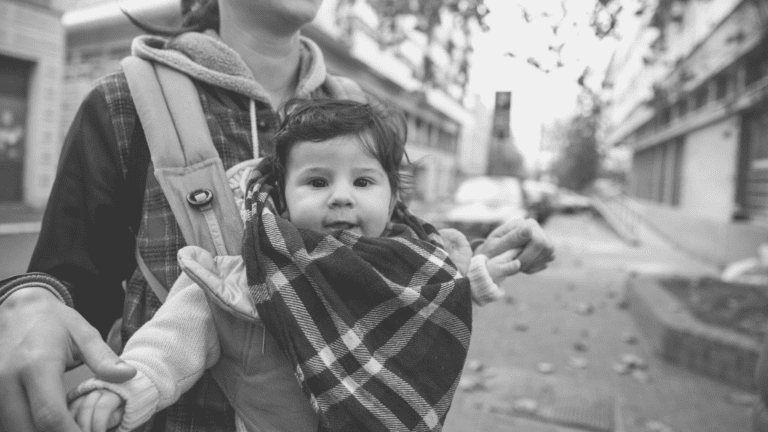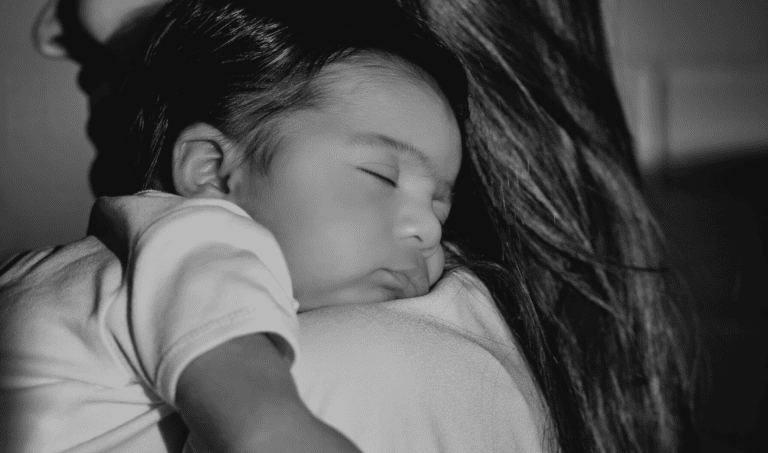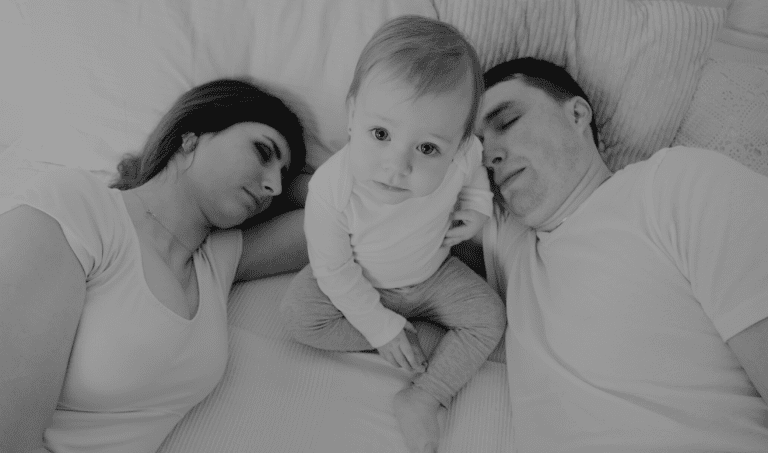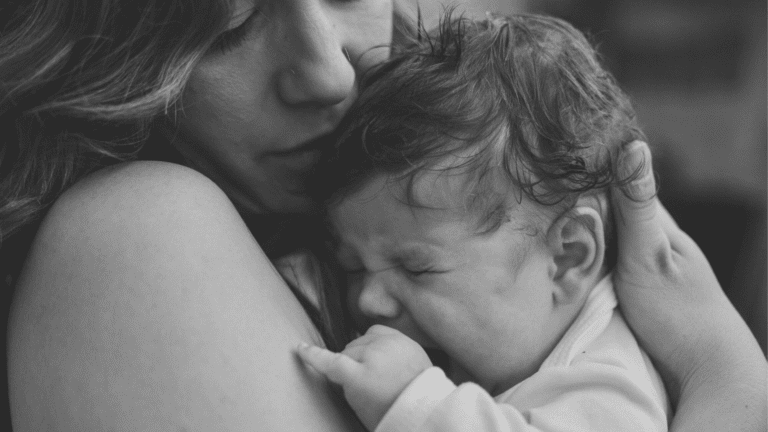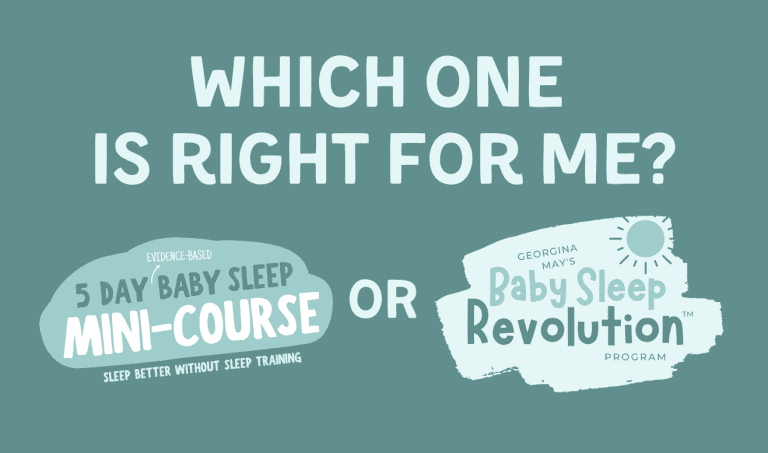Is your baby or toddler struggling to link or connect sleep cycles overnight and you have no idea why?
Maybe they’re waking more often than other babies you know of a similar age and you’re feeling like they should be sleeping for longer stretches too.
Or maybe they’re REALLY wakeful – waking every sleep cycle (hourly, or even more often) for some, or all, of the night?
If you’re in either of these situations – you’re in the right place and you’re definitely not alone!
Frequent night waking is by far the most common sleep challenge I help parents with in my work as an evidence-based baby and toddler sleep educator.
Keep reading because I’m going to explain the most likely reasons why little ones struggle to link or connect sleep cycles at night, and what you may be able to do to help your baby or toddler sleep for longer stretches.
Let’s start with a little bit of background info…
Firstly: it’s important to be aware that no-one technically ‘sleeps through the night’
And that’s because every human being sleeps in cycles.
Each sleep cycle is made up of different stages of sleep – younger babies cycle through a combination of ‘quiet’ and ‘active’ sleep, while older babies/toddlers, children and adults cycle through various stages of non-rapid eye movement (NREM) and rapid-eye-movement (REM) sleep [1].
Adult sleep cycles usually range from 70-120 minutes in length, depending on the time of night.
While babies and toddlers have shorter sleep cycles – between 50-60 minutes long on average [1], though research shows they can range anywhere from 30-70 mins [2].
At the end of every sleep cycle we enter into a stage of semi-awakeness and, then we either stir and transition into the next sleep cycle if all’s well and we’re tired enough; or if we’re not tired enough, or something’s not right (e.g. we’re uncomfortable, hungry, thirsty, unsafe, stressed, worried or need to go to the bathroom) we may fully wake.
Secondly: it’s NORMAL for babies and young children to wake at night
There’s a really good body of evidence that supports this! For example, a study out of Ireland in 2015 found that 84% of 9 month old babies were reported to wake and signal to their parents at night [3]. A study out of Canada in 2018 found that only 57% of 12 month olds were reported to ‘sleep through the night’ (for 8 hours straight) [4]. And a study out of the US in 2019 used actigraphy (electronic monitoring) to measure sleep/wake activity and found that toddlers aged 2.5 years woke on average 4.7 times for greater than 5 minutes each time [5]. Not all of those would have been signalled awakenings, but interesting all the same!
So the evidence is very clear it’s more common than not for babies to wake at night and still very common into toddlerhood. So if your little one isn’t linking or connecting all their sleep cycles at night, don’t stress – waking at night is 100% normal!
Side note: if a parent tells you their baby sleeps through the night – either they’ve been sleep trained (in which case they still wake but just don’t signal [6], they’re in the minority who naturally wake but don’t signal, or they’re telling you a porky pie!
And it’s not just babies and toddlers who wake at night – we also have to remember that it’s very normal for adults and older children to wake.
The difference is, adults and older children can usually solve their own problems and get back to sleep without the help of another person, whereas babies and younger children often need help from a trusted caregiver to tend to their needs and fall back asleep.
Why do babies and toddlers wake at night?
Little ones wake for many reasons at night. The most common include:
To feed
Their tummies are much smaller than older children and adults, and milk – especially breastmilk – is easily digested, so they often need to feed more often for nutrition/hydration – and that can include at night – at least a few times, sometimes a little more if a baby is ‘breastsleeping’ (breastfed and bedsharing).
Very frequent feeding (especially every sleep cycle) can sometimes be a sign of a feeding problem and should be investigated with a healthcare professional if you have concerns. It can also be a sign of low sleep pressure (covered further down this list).
Separation stress
Some little ones have a strong need to be close to their parent/caregiver at night, and can become stressed if they can’t sense their caregiver’s presence (hear/smell/touch them) when they wake
If they’re in pain or discomfort
And they need help to get comfortable again. This might be related to temperature (especially being too hot), needing a nappy/diaper change, illnesses (which are very common in the first few years), and – less commonly, but still important to consider – health conditions that cause pain or discomfort. In terms of teething, the jury’s still out – there’s no solid evidence associating teething with increased wakefulness, and equally no solid evidence showing no association).
Bad dreams / frightened by something (noise, the dark etc.)
These can activate the body’s stress response system and they may need your help to calm down and fall back asleep.
If they’re not tired enough (low sleep pressure)
While a few wakes at night is usually 100% normal, if a little one’s sleep pressure is too low it can sometimes cause them to sleep lightly and fully wake at the end of each sleep cycle for some or all of the night. Which can then require a parent or caregiver to help them resettle.
If your baby or toddler is very wakeful – waking frequently at night – and you’ve ruled out other possible causes, then this may be the reason!
As adults we can judge our own level of tiredness more easily than we can judge our little ones level of tiredness, and so it’s common for babies and toddlers to be put to bed / settled for sleep when they may not be tired enough for a solid night’s sleep (even if they don’t have trouble falling asleep).
Research has found there’s a very wide variation when it comes to how much sleep babies and toddlers need. Some need a lot of sleep per 24 hours, while others only need a few hours more than adults [7]. But parents are often told (incorrectly) that all babies need a lot of sleep and this – along with many other common, opinion-based ideas out there in the babyverse – can cause parents to settle their little one / put them to bed too early.
My baby is waking every sleep cycle – what can I do?
The first step is to work out what’s causing the wakefulness. The list above includes some of the most common possibilities.
And the second step is to address the cause/s.
The info I’ve shared here may be all you need to continue on with your investigations, but if you’d like help troubleshooting wakefulness and improving sleep…
Check out my 5 Day Baby Sleep Mini-Course!
It’s specifically designed to help you get to the bottom of what’s causing your little one’s wakefulness AND arms you with my top evidence-based tips – tweaks and changes you can make to help improve sleep and settling.
In less than a week you’ll feel so much more relaxed and confident and be on your way to feeling much better rested too!
[CTA button] Find out more & sign up here
Georgina x
References:
[1] Science of Sleep: What is Sleep?, Harvard Medical School: Division of Sleep Medicine, accessed 8 December 2022, <https://sleep.hms.harvard.edu/education-training/public-education/sleep-and-health-education-program/sleep-health-education-47>
[2] Grigg-Damberger M. M. (2016). The Visual Scoring of Sleep in Infants 0 to 2 Months of Age. Journal of clinical sleep medicine : JCSM : official publication of the American Academy of Sleep Medicine, 12(3), 429–445. https://doi.org/10.5664/jcsm.5600
[3] Hughes, A., Gallagher, S., & Hannigan, A. (2015). A Cluster Analysis of Reported Sleeping Patterns of 9-Month Old Infants and the Association with Maternal Health: Results from a Population Based Cohort Study. Maternal and child health journal, 19(8), 1881–1889. https://doi.org/10.1007/s10995-015-1701-6
[4] Pennestri, M. H., Laganière, C., Bouvette-Turcot, A. A., Pokhvisneva, I., Steiner, M., Meaney, M. J., Gaudreau, H., & Mavan Research Team (2018). Uninterrupted Infant Sleep, Development, and Maternal Mood. Pediatrics, 142(6), e20174330. https://doi.org/10.1542/peds.2017-4330
[5] Hoyniak, C. P., Bates, J. E., Staples, A. D., Rudasill, K. M., Molfese, D. L., & Molfese, V. J. (2019). Child Sleep and Socioeconomic Context in the Development of Cognitive Abilities in Early Childhood. Child development, 90(5), 1718–1737. https://doi.org/10.1111/cdev.13042
[6] Hall, W. A., Hutton, E., Brant, R. F., Collet, J. P., Gregg, K., Saunders, R., Ipsiroglu, O., Gafni, A., Triolet, K., Tse, L., Bhagat, R., & Wooldridge, J. (2015). A randomized controlled trial of an intervention for infants’ behavioral sleep problems. BMC pediatrics, 15, 181. https://doi.org/10.1186/s12887-015-0492-7
[7] Price, A. M., Brown, J. E., Bittman, M., Wake, M., Quach, J., & Hiscock, H. (2014). Children’s sleep patterns from 0 to 9 years: Australian population longitudinal study. Archives of disease in childhood, 99(2), 119–125. https://doi.org/10.1136/archdischild-2013-304150


